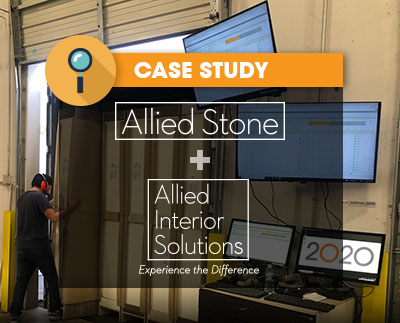
If you're like most business owners, you want to have a clear understanding of what is happening in your factory at all times. Unfortunately, this level of visibility can be challenging to achieve without the help of an integrated MES system.
With MES systems, manufacturers connect their shop floor with people, processes and machines, providing clear communication about what needs to happen next at their work center. Orders are scanned and tracked throughout the shop floor so that customer service has real-time visibility on each order.
This allows manufacturers to provide their customers with a higher level of transparency into their orders. Having an integrated shop floor system that communicates and tracks orders ensures your business excels at product quality and builds customers' trust. The transparency it offers pushes factory owners to adopt MES systems.
In this blog post, we will discuss the benefits that such a system can bring to your business. We'll also look at how an integrated MES system can help you overcome common production challenges.
Modern factories critically need MES solutions
MES solutions have cleared that way and made it easy to remove the issues that typically impact the production efficiency, product quality, and compliance that are so critical to the success of any factory.
An MES system provides a digital backbone that can be used as a single source of truth for the production process of an organization. Data is collected in real-time from various machines and procedures on the factory floor and is then processed, analyzed, and reported on by the MES software. This data can be used to improve factory operations in many ways while still providing measurable results.
Here are a few ways an integrated MES system can bring transparency and visibility to your factory.
Collect data at different checkpoints throughout your factory
One of the benefits of an integrated MES system is that it allows you to collect data at different checkpoints throughout your factory.
This data can be used to improve a number of different areas within your business. For example, while reviewing the production dashboards of the Surface Process Parameter chart/diagram, a furniture manufacturer finds that between 4 a.m. and 5 a.m. on the previous day, there were large fluctuations in air pressure, humidity, and temperature between actual and target data. Using part tracking, the parts produced at that time are identified, the current location is located, and the surface of those parts is manually inspected. Where quality was affected, re-production is initiated immediately.
This data can also be used to improve your factory's overall efficiency. By understanding where bottlenecks are occurring, you can make changes to your processes that will help eliminate them. Plus, with the ability to automatically record this data as your factory functions, you'll have greater transparency into your business without having to put any extra effort into it.
Enhance communication on your company’s shop floor
MES systems deliver the correct information to operators and machines in real-time.
Bills of material, inventory, worklists, labels, and CNC programs are generated by the system. These provide information for each step of the production process of the customer’s order. Product progress is tracked through scanning at checkpoints, and this type of production status information can be used across all departments in the company that can benefit from the collected data.
Improve customer service through real-time production status updates
Another benefit of an integrated MES system is that it can be used to improve your customer service.
With the ability to see production status in real-time, you'll always know where each order is at and when it is scheduled to be completed. This information can then be passed on to your customers so that they are always up to date on their order status, and you can provide a realistic turnaround time that ensures their satisfaction.
In addition, if there are any production delays, you'll be able to quickly identify them and take steps to correct the issue. This way, you can keep your customers informed of any changes and minimize any potential problems that could arise from a delay. This level of communication and transparency is sure to please your customers and could even lead to increased business from them in the future.
Improve cycle times by providing needed insights to optimize production
Another way that an integrated MES system can bring transparency and visibility to your factory is by helping you improve your cycle times.
The data collected by the MES system can be used to provide insights that will help you optimize your production. If you notice that a particular process takes longer than it should, you can use the data to see where the backup occurs along your production line.
For example, the shift supervisor of a furniture manufacturing plant reviews a report from the MES system that compares the actual production time recorded with the target time for each workstation. The supervisor finds that all workstations are performing well except for the panel saw, where there seems to be a high deviation.
Once the problem is identified, you can then take steps to correct it and improve your overall production efficiency. This could involve changing your processes, equipment, or even your workforce. Whatever the case may be, by having visibility into your production cycle, you'll be able to make the necessary changes to help improve it.
Increase efficiency by reducing downtime
An MES system can also be used to increase efficiency by reducing downtime in your business.
By understanding how your machines are being used, you can make changes that will help improve overall efficiency. For example, by accessing machine utilization data, you can determine when maintenance is needed. By scheduling maintenance at times when it will have the least impact on production, you can avoid potential downtime and thus increase efficiency.
Automate your production process with 2020 software solutions
As you can see, an integrated MES system can bring a lot of transparency and visibility to your factory. By collecting data at different checkpoints throughout your factory and using it to make informed decisions, you can improve a number of different areas within your business. In addition, an integrated MES system can also be used to enhance your customer service and reduce downtime.
The bottom line is that the right MES solution can help any business achieve its goals by improving communication between departments and ensuring data accuracy from the shop floor to top management.
If you're looking for a way to automate your production process and improve the overall efficiency of your factory, then our software solutions at 2020 might be the right move for your business.
2020 Insight offers powerful MES functionality that can be tailored to the specific needs of your factory and improve your overall operations. Production activity is visible at any time on browser-based devices so informed decisions can be made with a 360° view of the shop floor.
We invite you to browse through our software offerings today to find the right industry-specific solution for your business and to read a case study with one of our 2020 Insight customers, Allied Stone Inc., who successfully implemented our solution to improve integration and visibility issues within their company.
Share this Post





